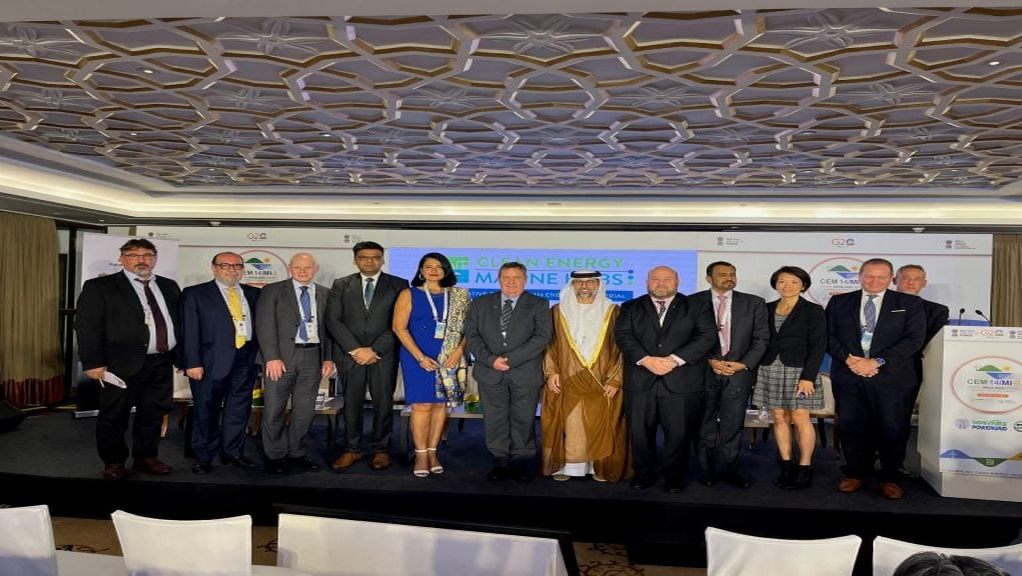The Clean Energy Ministerial (CEM) has adopted the Clean Energy Marine Hubs Initiative (CEM-Hubs) at a summit in Goa, India. The first-of-its-kind platform brings together the private sector and governments across the energy-maritime value chain to transform maritime transportation and production hubs for future low-carbon fuels.
The CEM-Hubs initiative is initially backed by Canada, Norway, Panama, Uruguay and the United Arab Emirates (UAE) in partnership with the International Chamber of Shipping (ICS), and the International Association of Ports & Harbors (IAPH). The CEM Hubs initiative is a partnership that’s jointly led by private sector and governments working in close collaboration.
The energy maritime value chain is far from ready to transport the influx of low-carbon fuels that are expected between now and 2050. To accommodate demand, the shipping industry is expected to transport at least 50% of all traded low carbon fuels by 2050, according to the International Renewable Energy Agency (IRENA). But the production centres, vessels and port infrastructure required to accommodate expected demand do not currently exist at commercial scale.
So far only one ship in the whole global fleet has been piloted to transport liquefied hydrogen – travelling from Australia to Japan. For hydrogen derivates such as ammonia and other low-carbon fuels moved by ships, the scale is far from what heavy industries, transport, and other sectors would require. To support the global transition to net-zero targets, shipping is expected to transport between two and up to five times the low-carbon fuels it will consume by 2050. The mix of fuels that shipping moves will also need to change to be aligned to the Paris Agreement.
Participants have convened in Goa for the first ever CEM-Hub meeting. The initiative was adopted less than a year after it was first presented, in an unprecedented move by the Clean Energy Ministerial (CEM) that reflects the immense scale of the problem and urgency to establish solutions. The CEM-Hubs initiative and progress will be featured at the next COP28 in Dubai.
The initiative is also supported by the International Renewable Energy Agency (IRENA) and the Global Centre for Maritime Decarbonisation (GCMD).
Tags: CEM-Hubs, ICS, India, UAE



Recent Posts
Blue Marlin Becomes First Inland Cargo Vessel with Solar-Assisted Propulsion
ABB and Royal Caribbean Partner on 15-Year Deal to Drive Vessel Efficiency and Decarbonization
IET Establishes Centres of Excellence for Green Hydrogen and Electric Vehicle Research
SECI Cancels Green Hydrogen Hub Tender, Pauses Momentum on Flagship Mission
India Pushes Green Shipping and Sustainable Waterways in Northeast with ₹5,000 Crore Investment
Himachal Pradesh Plans Major Boost to Public Transport with E-Buses and Digital Upgrades
Ammonia-Fueled Container Feeder Design Marks Progress in Maritime Decarbonisation
ABS Develops Industry-Leading EV Battery Fire Simulation Modeling